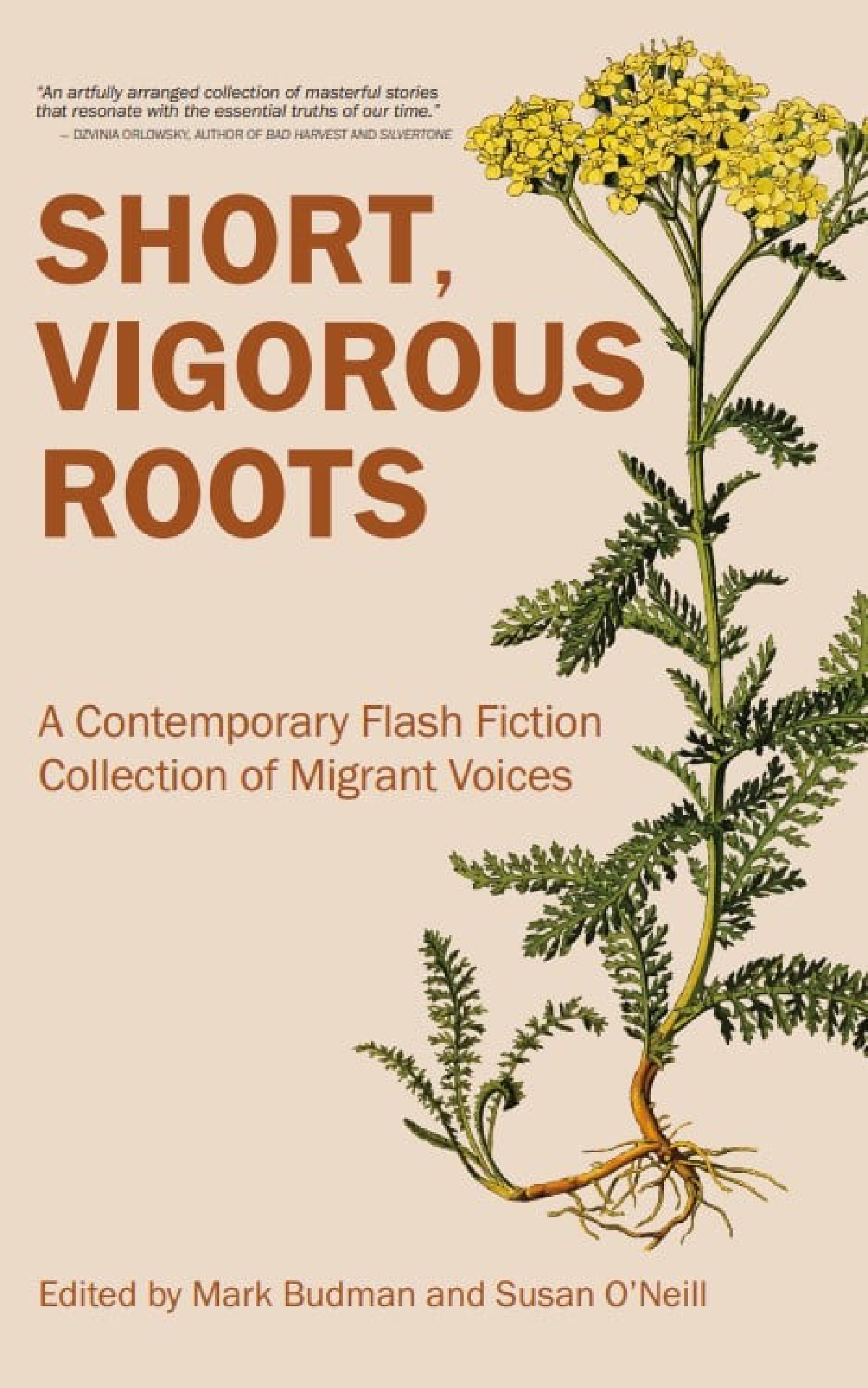
Crossing Boundaries: Short, Vigorous Roots in Flash Fiction
In Short, Vigorous Roots: A Contemporary Flash Fiction Collection of Migrant Voices, an anthology produced by Portland State University’s student-run Ooligan Press, we see the short form’s mobility, strength, and potential tested by thirty-two first- and second-generation immigrant writers. One of the anthology’s co-editor’s, Mark Budman, himself a first-generation émigré from the former USSR, writes in the volume’s introduction, “Immigrants are more mobile and dynamic than most people with longer roots, and this mobility requires both determination and stamina. Immigrant writers possess both of these qualities in excess.” The dexterity found in these tales of departures and arrivals, of documents and offices, airports, boats, and desert paths, spans nations and generations, and crosses borders of language and culture. They are stories of the in-between, liminal phases of uncertainty, hope, and fear, where characters journey for belonging and reckon with the forces that led them to diaspora.
Flash fiction — a complete story under one thousand words — is a surprisingly apt form for O’Neill and Budman’s project. While a thousand words might not seem like a large enough canvas to paint a picture of immigration, the immediacy and the brevity of flash fiction emphasizes the moments we do get. Fragile, highly charged moments, like that of Thúy, in “Searching for Elsewheres that Lead to Somewheres” by Kathy Nguyen, a refugee who must decide whether to scatter her husband’s ashes in their home, Việt Nam, or in the “unremarkable river” of the unnamed Westernized country where she and her husband had relocated after the war.
Flash fiction requires bold, innovative techniques. Flash fiction is a form for risk takers, for writers who, as Irving Howe wrote, “stake everything on a stroke of inventiveness.” Sayantika Mandal’s “Hilsa in Hog Plum Sauce” travels continents and three generations of women as each mother passes down the familial recipe to the daughter, connecting her to roots as she strives through an increasingly globalized world. “Chasing Gods” by Edwin Subašić begins in a war refugee camp in Croatia, and quickly pivots to the home of a German sponsor, and then lands in Powell’s City of Books in Portland, Oregon eight years later, the protagonist now a writer. “Arrivals” by Irina Popescu dispenses time altogether, treating her story of belonging as a cyclical becoming of one’s mother.
The stories contained in Short, Vigorous Roots push the poetic limitations of flash fiction because these writers must invent strategies that can traverse generations and national boundaries while still situating the reader within a charged moment of specificity after which nothing will be the same. James Corpora in “Crossing The Line” captures this tension poignantly. Father and son, Ramón and Berto, cross the southern border from Mexico into the United States, but to cross Ramón pays the blood price of killing the coyote who led them to the path. Corpora’s compact scenes intensifies the story’s resolution: a future of blood-stained roots. In crossing the line between nations, Berto and Ramón enter a morally ambiguous land.
When it appears, the search for belonging is often met with tradeoffs that leave characters looking both backward and forward — the present a festering, healing scar. It is a wandering yet hopeful state that rounds the circumference of life and death. Irina Popescu describes this feeling as “home no longer home” in “Mushrooms,” where a mother takes her daughter to the forest behind her own mother’s house to pick mushrooms that outline “the contours of their inherited bodies,” a pilgrimage that suggests the way forward is a dialectical movement between America and one’s home. Once you leave, ‘home’ changes irreparably and yet continues to grow, to bear fruit of change.
The stories in Short, Vigorous Roots are as the volume’s title implies: immediate and bright, brief and grasping. The immediacy and the brevity of flash fiction emphasizes how putting down roots in a new land is an incomplete process, an ongoing story of creation and survival, fragile and tenuous, yet ardent and resilient. Short, Vigorous Roots is a mosaic that enlarges our perception of migration with a global perspective. Editor Mark Budman describes the stories as “windows into different worlds.” We can also describe them as passports into different lives and possibilities, the implication Yara Zgheib suggests in “On the Counter” that a passport is “a universal recognition of the freedom of movement.” In less than a thousand words, these stories cross borders and generations. Whatever belonging these characters arrive to, it will bear the marks of the past and tenaciously move forward.
Short, Vigorous Roots is available from Ooligan Press.